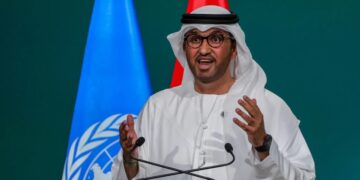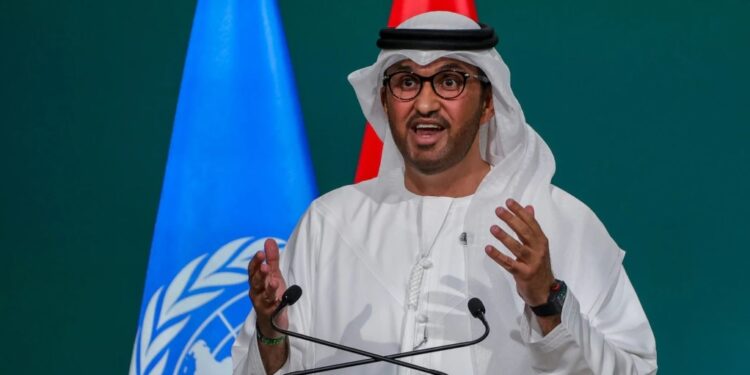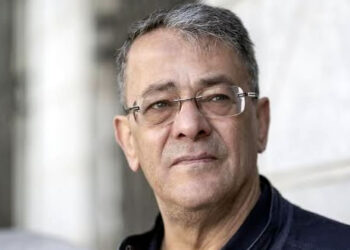By John Ikani
The nation hosting COP28, the global climate talks aimed at curbing fossil fuel emissions, is reportedly significantly boosting its own oil production, according to information obtained by the BBC.
“Adnoc, the state oil firm of the United Arab Emirates, is projected to increase drilling by 42% by 2030,” state analysts recognized as leaders in oil market intelligence.
Adnoc clarifies that these are capacity projections, not actual production, emphasizing its commitment to a 7% increase in production capacity over the next four years.
Amid the COP28 focus on reducing fossil fuels, including oil and gas, Adnoc’s president and COP president, Sultan al-Jaber, faces scrutiny as the new data suggests a rapid expansion is underway.
Rystad Energy, a reputable source in oil industry analysis, provided the information, and Global Witness used it to compile a list of top oil producers up to 2050.
The UAE currently ranks 12th globally but is projected to follow only Saudi Arabia in oil production between 2023 and 2050.
The 42% production increase is anticipated to elevate output from just over a billion barrels in 2023 to nearly 1.5 billion barrels by 2030, with aggressive expansion expected through the 2030s.
By 2050, Adnoc is predicted to produce around 850 million barrels annually, a notable decrease from its current billion-barrel output.
Concerns arise as experts argue that this expansion contradicts efforts to limit global warming to 1.5°C, with projected emissions exceeding 14 billion tonnes of CO2 by 2050.
Fatih Birol of the International Energy Agency asserts that Adnoc’s expansion is incompatible with climate targets, emphasizing the inconsistency between increased production and Paris Agreement commitments.
Adnoc counters, asserting the analysis doesn’t distinguish between capacity and actual production, emphasizing its commitment to sustainable practices and a 25% carbon intensity reduction by 2030.
Global Witness, however, contends that Adnoc plans to produce more oil than almost any other operator globally, challenging the scientific consensus embraced by COP President Sultan al-Jaber.
The future of oil production remains uncertain, but environmental advocates argue against pursuing new drilling opportunities. As COP President, al-Jaber faces calls to align Adnoc’s plans with climate goals, highlighting the pivotal role he plays in the success or failure of the UAE’s COP Presidency.



































